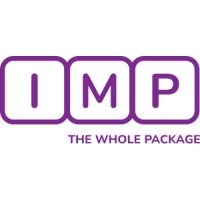Navigating Regulatory Differences: The Role of Qualified Persons in Israel and the EU
In the global landscape of clinical trials, regulatory frameworks vary significantly from one region to another. One of the most critical aspects of these frameworks is the role of the Qualified Person (QP), a function that is mandatory in the European Union but differs considerably in other regions, such as Israel. Understanding these differences is essential for bio-startups and pharmaceutical companies that operate across borders, as it impacts the management and release of investigational medicinal products (IMPs). This article explores the distinctions between the QP roles in Israel and the EU, providing insights into the regulatory expectations and practical implications for companies navigating these complex environments.
Who is a QP?
The QP is an EU origin regulatory term referring to an experienced professional with the requisite qualifications and expertise in the pharmaceutical industry. The QP is responsible for certifying that each batch of IMP complies with the relevant regulatory requirements of the clinical trial authorization (CTA) and with Good Manufacturing Practice (GMP) before it can be released for use in clinical trials.
The Qualified Person (QP) term, originally established by the European Union, has been adopted by Israel and integrated into local regulations. This alignment was a result of the finalization of the Agreements on Conformity Assessment and Acceptance of Industrial Products (ACAA) between the European Communities, their member states, and the state of Israel. The ACAA agreement ensures that Israeli standards conform to EU norms, allowing for mutual recognition of quality assurance measures, including the QP role in clinical trials.
Responsibilities of a QP
- Batch Certification: The QP certifies that each batch of an IMP has been manufactured, tested, and transported in accordance with GMP and GDP standards, reviews the Product Specifications File (PSF) and the approved clinical trial protocol to ensure all trial specific needs are met.
- Regulatory Compliance: The QP ensures that all necessary documentation is complete and that the IMPs meet all regulatory requirements.
- Risk Management: The QP assesses and manages risks associated with the IMPs, ensuring that any potential issues are identified and addressed before release.
Differences Between Israel and EU Regarding QP Function
The role of the Qualified Person (QP) is well-defined and mandatory within the EU, whereas Israel has a different regulatory approach to this function. In the EU, the QP must certify that each batch of an investigational medicinal product (IMP) complies with the regulatory requirements before it can be released for use in clinical trials. This certification is a critical component of the clinical supply chain, ensuring that the IMPs meet the stringent standards set by the EU. In the EU, a depot must be used, acting as the Importer of Record (IoR). After QP release, the depot is responsible for managing the supply chain within Europe. Once a QP certification is performed in any EU country, it covers all member states.
In Israel, the QP function exists but differs from the European system. While Israel has rigorous regulations for the manufacturing and distribution of medicinal products, the QP release process is not identical to the EU’s. In Israel, QP recertification relies on the European QP, or the authorized person in other recognized countries, release and is mandatory only for Phase 3 and 4 studies although the release of IMPs to use in Phase 1 and Phase 2 studies required to be performed according to the same guidelines. This approach means that production facilities intended to manufacture IMPs to use only in Phase 1 and 2 will not be inspected by the Israeli MoH and cannot obtain a GMP certificate. Moreover, unlike in the EU where QP release is a regulatory requirement for all phases of clinical trials, Israel requires this process primarily in the later stages of drug development. This distinction can create challenges for companies’ conduction trials in both regions, as they must navigate and comply with differing regulatory expectations.
Example: Handling IMPs Between Israel and the EU
Consider a scenario where an investigational drug is manufactured in Israel and then imported into the EU for use in a clinical trial. In Israel, the IMP would be produceds under strict GMP conditions but not necessarily in GMP certified facility. Upon arrival in the EU, the IMP must undergo QP release, also for early stages clinical studies before it can be distributed to the clinical sites.
This QP release involves a thorough review of the batch documentation, testing results, and adherence to EU-specific regulations. The QP must confirm that the IMP meets all EU requirements, regardless of the standards applied in Israel. Additionally, the EU QP holds the authority to audit and qualify a manufacturing site in Israel, irrespective of the site’s existing GMP certification, to ensure full compliance with EU standards. Only after the QP certifies the batch, the IMP can be released for use in the clinical trial. This dual compliance ensures that the IMPs adheres to both Israeli and European standards, but it also highlights the complexities involved in managing cross-border clinical supplies which affects the study timelines and costs.
Conclusion
Accessing the European market requires a thorough understanding of the clinical supply chain, and the role of QP release in clinical trials. By focusing on regulatory compliance, efficient logistics, and robust risk management, bio-startups can overcome challenges and seize the opportunities presented by the EU market. At IMP Clinical Supply Services Ltd., we are committed to supporting our clients through every step of this journey, ensuring their success in the dynamic and challenging European landscape.
Written by:
CEO at IMP Clinical Supply Services Ltd.
Sofi Glam, VP of Business Development & Customer Success at IMP Clinical Supply Services Ltd.
Aviva Feifer, Business Development Manager at IMP Clinical Supply Services Ltd.


Subscribe Now to the Bio-Startup Standard
Notify me for the next issue!




